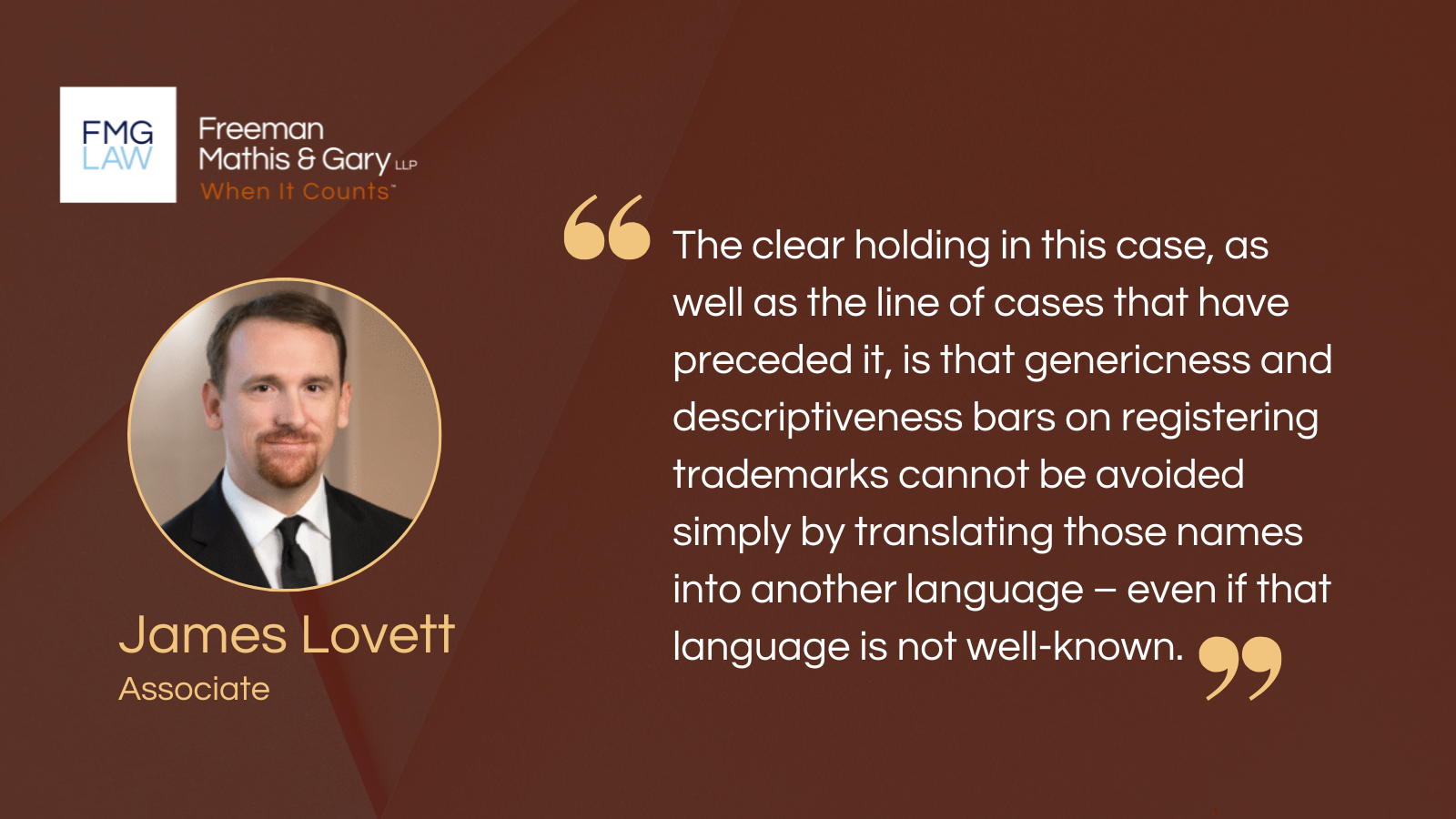BlogLine
Un Vêtement by any other name – The doctrine of foreign equivalents examined by the Court of Appeals for the Federal Circuit
5/29/25

By: James V. Lovett
In a precedential order by the Court of Appeals for the Federal Circuit, the doctrine of foreign equivalents was examined and applied to applications for the mark VETEMENTS. In the matter In re: Vetements Group AG, the applicant had submitted two applications regarding the word VETEMENTS in connection with the sale of clothing. Complications with these applications arose, however, because “vetements” is the French word for “clothing.” The United States Patent and Trademark Office denied the applications under the doctrine of foreign equivalents and the test for genericness, and the applicant appealed.
The doctrine of foreign equivalents is used to determine if non-English word marks are too generic or descriptive. It does so by translating the mark into English and then considering the genericness or descriptiveness of the term. In this case, VETEMENTS was translated into CLOTHING, and it was then found to be generic and descriptive because the claimed goods were, in fact, clothing. However, this is not an absolute rule and is not applied in certain cases, such as when it is unlikely a consumer will translate the mark and take it as it is. A well-cited example of this situation is the use of the mark VEUVE, which translates to WIDOW and was used, in part, as a connection to wine. With no connection between the terms “widow” and “wine,” there would likely be no need or incentive for the translation by the consumer.
In determining whether the doctrine of foreign equivalents applied, the Vetements Court utilized a three-part, nonexclusive set of guiding principles. First, the Court made it clear that the burden is on the party opposing translation to show that it is unlikely that the ordinary American purchaser would stop and translate the word into its English equivalent. Second, the Court considered the capability of the U.S. population to translate the word. It did not require that the majority of the population be able to translate the word, just that an “appreciable number” be able to do so. Finally, the Court considered whether in context, the mark would be translated by a purchaser with “ordinary sensibilities.” This is to say, would the mark, within the context of its use, be likely to be translated by a purchaser.
The clear holding in this case, as well as the line of cases that have preceded it, is that genericness and descriptiveness bars on registering trademarks cannot be avoided simply by translating those names into another language – even if that language is not well-known. Businesses must be aware, and practitioners must counsel them, that the same test may apply regardless of language. Thus, a water seller likely could not register “AGUA.” An automobile manufacturer likely could not register “VOITURE.” This underscores the importance of engaging skilled trademark attorneys that can help to develop strong brand and intellectual property protections.
If you have any questions about the Vetements case, trademark protections or other intellectual property matters, please contact James Lovett at james.lovett@fmglaw.com, practicing in FMG’s Intellectual Property Law Practice Team.
Information conveyed herein should not be construed as legal advice or represent any specific or binding policy or procedure of any organization. Information provided is for educational purposes only. These materials are written in a general format and not intended to be advice applicable to any specific circumstance. Legal opinions may vary when based on subtle factual distinctions. All rights reserved. No part of this presentation may be reproduced, published or posted without the written permission of Freeman Mathis & Gary, LLP.
Share
Save Print
